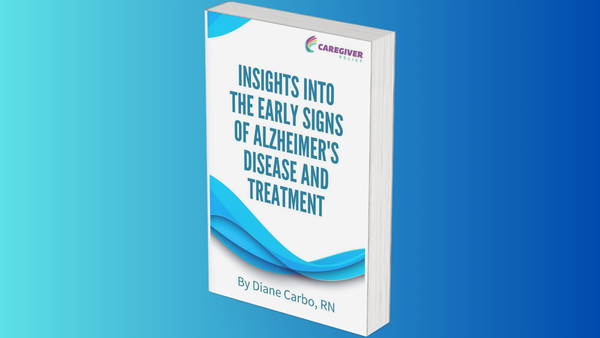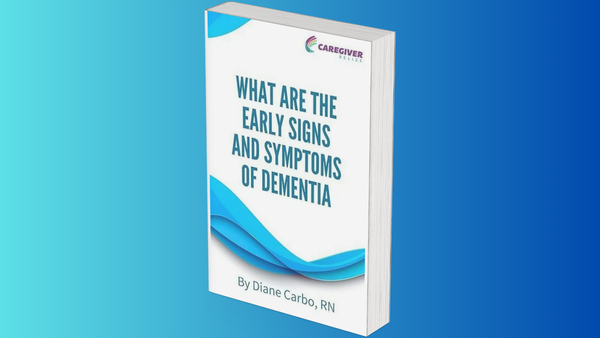Is Lewy Body Dementia Genetic?

Introduction
Lewy body dementia (LBD) is a progressive neurodegenerative disorder that causes difficulties in thinking, movement, behavior, and mood. It is one of the most common forms of dementia, affecting an estimated 1.4 million people in the United States. While the exact cause of LBD remains unknown, genetic factors may play a role.
In this guide, we'll provide a comprehensive overview of LBD and explore how genetic factors can contribute to the development and progression of this disease. We'll discuss the various treatments and care options available to those living with LBD, as well as the role of caregivers in providing support.
We hope that by the end of this guide, you'll have a better understanding of LBD and how it is influenced by genetic factors.
Lewy body dementia (LBD) is a type of progressive brain disorder that can lead to cognitive decline. It causes abnormal deposits of protein, called Lewy bodies, to form in the brain. These deposits damage the neural cells and can confuse the chemical signals within the brain.
The effects of LBD can vary from person to person depending on the location and size of the deposits. Generally, people with LBD experience problems with thinking, movement, behavior, and mood. Symptoms include confusion, visual hallucinations, difficulty with memory, sleep disorders, tremors, rigidity, and impaired coordination.
LBD is the second most common type of dementia after Alzheimer’s disease. It affects both men and women equally and typically develops between the ages of 50 and 85. While there is no cure for LBD, treatments and lifestyle changes can help manage symptoms.
In this guide, we will explore Lewy body dementia and the role genetics has in its development. We will provide a comprehensive overview of Lewy body dementia, including what causes it, its symptoms, and possible risk factors.
We will dive deeper into the realm of genetics, analyzing the scientific studies and discussing the chances of inheriting the risk from first-degree relatives. We will also cover the recommended lifestyle changes, treatments, and therapies for those living with Lewy Body Dementia as well as the role of caregivers in managing the condition.
Finally, we will wrap things up by summarizing the information covered and addressing any remaining questions about genetic factors and their role in Lewy Body Dementia. So, let's get started!
Lewy body dementia (LBD) is a type of progressive dementia that affects an individual’s cognitive, motor, and behavioral functioning. Genetic factors can influence the development of this condition, although understanding the exact relationship between them can be difficult. In this guide, we will explore how genetics may play a role in Lewy body dementia, including its prevalence among first-degree relatives, as well as examine the current treatments available for managing it.
Genetics are complex and dynamic, and research suggests that many diseases and conditions may have some form of genetic component. In the case of Lewy body dementia, certain genetic mutations have been linked to a higher risk of developing the condition, which may explain why certain family members may be more likely than others to be diagnosed with LBD. Additionally, lifestyle factors such as diet and exercise may also contribute to someone’s chances of developing the condition.
It is important to note that while genetic factors may be a contributing factor, they are not the only cause of LBD. It is also important to seek professional medical advice if you suspect that your loved one is living with Lewy body dementia.
In the next section of the guide, we will discuss the various studies that have explored the genetic basis of Lewy body dementia, and analyze their findings. We will also look at the importance of seeking early treatment and support for those living with LBD.
Overview of Lewy Body Dementia
Lewy Body Dementia (LBD) is a type of progressive dementia which affects cognitive ability, behaviour, and movement. It is a neurodegenerative disorder which results in the death of nerve cells in the brain over time.
The exact cause of LBD is unknown, but it is thought to be linked to genetics. The symptoms of LBD typically include changes in thinking ability, memory loss, difficulty with speech or language, hallucinations, mood swings, muscle stiffness, tremors, and changes in sleep patterns.
Although anyone can develop LBD, certain factors may increase the risk, such as age over 60 and certain pre-existing medical conditions. It is important to note that LBD can often be misdiagnosed, as the symptoms can be similar to those experienced when suffering from Alzheimer’s Disease.
What is Lewy Body Dementia?
Lewy body dementia (LBD) is a progressive neurological disorder characterized by difficulties with cognition, movement, and behavior. It is one of the most common forms of dementia, affecting multiple areas of brain functioning as it progresses.
What Causes Lewy Body Dementia?
The exact cause of Lewy body dementia is not known, although research suggests that it is likely linked to the accumulation of protein deposits (known as Lewy bodies) in the brain. These Lewy bodies may interfere with the functioning of neurons, causing changes in thinking, memory, and behavior. Additionally, genetic factors may play a role in a person’s predisposition towards developing LBD, although further research is needed to fully understand this.
Symptoms of Lewy Body Dementia
Lewy Body Dementia (LBD) is typically diagnosed after careful observation of the individual's mental decline. The most common symptom of LBD is a gradual deterioration of memory and thinking skills, which can be difficult to detect in the early stages. Other symptoms include:
- Changes in behavior, including agitation or apathy
- Trouble with movement and balance
- Hallucinations and changes in perception
- Trouble sleeping
- Depression and anxiety
If you believe you or someone you know may have LBD, speak to your doctor as soon as possible. Early diagnosis and treatment can help slow the progression of the disease.
Risk Factors For Lewy Body Dementia
Lewy body dementia is a neurodegenerative disorder that involves the progressive deterioration of brain cells. It is thought that certain genetic, lifestyle, and environmental factors may increase an individual’s risk of developing the condition. The most commonly reported risk factors for developing Lewy body dementia include age, having a family history of the condition, and pre-existing medical conditions such as Parkinson's disease.
Age is one of the leading risk factors for developing Lewy body dementia. It is more commonly seen in those over the age of 60, though it can affect individuals in their 40s or even younger.
Having a family history or genetics that predispose an individual to developing the condition also increases the risk of developing Lewy body dementia. This is why it is important to be aware of any family member who has been diagnosed with the condition.
Finally, those who have certain pre-existing medical conditions may be at a higher risk of developing Lewy body dementia. This includes conditions such as Parkinson’s disease, which can cause many of the same symptoms as Lewy body dementia.
Genetic Factors & Lewy Body Dementia
Lewy Body Dementia (LBD) is a form of dementia that can have a genetic component, meaning it can be inherited from first-degree relatives. To fully understand how genetics may play a role in one's risk of developing LBD, it is important to first explain what genetics are and how they affect a person's health.
Genetics are the inherited instructions for a person's physical and mental traits. These instructions are encoded in the DNA contained within every cell, and they are passed down from biological parents to their children. For certain conditions, such as LBD, there may be a genetic predisposition that can influence the chances of developing the condition.
Research has been conducted to better understand the role of genetics in LBD. Numerous studies have suggested that there could be a genetic predisposition to LBD, meaning that some people may have a higher risk of developing the condition if certain genetic factors are present.
The chances of inheriting the risk from a first-degree relative, such as a parent or sibling, depend on the type of LBD the relative has. For instance, studies have shown that familial LBD, which is caused by a mutation in the GBA gene, is more likely to be inherited than sporadic LBD, which is not associated with any known genetic mutation.
It is important to note that genetic factors alone do not determine the risk of developing LBD. There are several other environmental and lifestyle factors that can also influence this risk. Therefore, it is important to consider all the factors when assessing one's overall risk for LBD.
What Are Genetics?
Genetics are the instructions that are passed down from a parent to their child. These instructions come in the form of genes, which are special sequences of DNA found within our cells. Genes provide our bodies with the instructions on how to develop and function.
When it comes to Lewy Body Dementia (LBD), there may be certain genetic variations that increase the risk of developing the condition. Having a genetic predisposition for LBD can mean that individuals who have certain gene variations may be more likely to develop the condition than those without them.
How Do Genetics Affect Lewy Body Dementia?
Genetics can influence many aspects of a person's health, including their risk of developing Lewy Body Dementia. Even though there is no single gene responsible for causing LBD, there have been several genetic variations that are associated with an increased risk of developing the condition.
Some of these genetic variations are found on chromosomes one and four, while other genetic variants have been identified on chromosomes two, three, and eight. While no single gene is responsible for causing Lewy Body Dementia, having certain genetic variations has been linked to an increased risk.
In addition to these genetic variations, research has also suggested that having a first-degree relative (parent, sibling, or child) with LBD could increase your risk of developing the condition as well.
Analyzing Studies On Genetic Predisposition
When examining the role that genetics plays in Lewy Body Dementia, many studies have been conducted to better understand its impact. These studies have shown that an individual’s likelihood of developing the disease increases if they have a first-degree relative with the illness.
In particular, research indicates that having an affected parent results in a 40% chance of developing Lewy Body Dementia, while siblings with the disease increase one's risk by 25%. In addition, an affected grandparent or aunt or uncle can also introduce a 9% increased risk.
Though these numbers paint an alarming picture, it is important to note that genetics is not the only factor when it comes to Lewy Body Dementia. Numerous lifestyle and environmental factors also play a role in increasing one's risk of the disease.
Inheriting the Risk of Lewy Body Dementia
When it comes to Lewy body dementia (LBD), the question of genetic influence is a complicated one. While there is evidence that some forms of the disease are genetically linked, the chances of inheriting the risk from first-degree relatives are still unclear.
In general, it is believed that LBD is likely to be passed down from generation to generation in some families. However, the exact odds of inheriting the condition still remain unknown. Some researchers believe that familial cases of LBD tend to have an earlier age onset than sporadic cases of the disease.
If you have a family member with LBD, it's important to understand your own risks for developing the condition. If you have questions or concerns, it’s best to consult with your doctor to get more information. A genetic counselor can also help you understand the potential risks and provide more detailed information when needed.
It’s also important to remember that while genetics may play a role, other factors are involved as well. Maintaining a healthy diet, exercising regularly, and managing stress can all help reduce the risk of developing LBD.
Treatment and Care for Lewy Body Dementia
Lewy body dementia can be difficult to treat, but there are many ways to manage the symptoms and improve quality of life. For those living with Lewy body dementia, lifestyle changes and treatments can make a big difference in controlling symptoms.
One of the first steps in managing Lewy body dementia is to make lifestyle changes that can help reduce symptoms. Some lifestyle changes that could be beneficial include: getting regular exercise, eating a healthy and balanced diet, getting enough good quality sleep, avoiding stressful situations, and spending time outdoors.
In addition to lifestyle changes, various treatments and therapies are available for managing symptoms. Depending on the individual and the severity of symptoms, treatments may include medications, occupational therapy, physical therapy, speech and language therapy, memory aids, and counseling.
Finally, caregivers play a critical role in helping care for someone with Lewy body dementia. Caregivers can provide help with everyday tasks, accompany the person to appointments, and provide emotional and practical support. Caregivers may also want to consider joining a support group so they can connect with other people who are going through similar experiences.
Recommended Lifestyle Changes for Those Living with Lewy Body Dementia
Lewy body dementia is a progressive and degenerative disorder that can severely impact an individual's ability to maintain a normal lifestyle. As such, those living with the condition will need to make certain lifestyle changes to help manage their symptoms.
It's important to focus on maintaining proper nutrition, as this is one of the key components of managing this type of dementia. Eating a balanced diet, rich in fruits and vegetables, lean proteins, whole grains, and healthy fats can help to keep energy levels up and optimize brain health. Additionally, drinking plenty of water helps to keep the body hydrated and ensure adequate circulation.
Engaging in moderate physical activity, such as walking or swimming, is also beneficial. Even low-impact exercises like yoga or tai chi can help to improve the overall quality of life and can help to stave off many of the debilitating effects associated with the condition. Regular physical activity can also help to boost mood and maintain cognitive abilities.
It's also important to focus on developing healthy habits and routines to help manage stress and anxiety. Relaxation techniques, such as deep breathing and mindfulness meditation, can be helpful for reducing stress levels. Additionally, getting enough sleep each night is essential for maintaining good mental health.
Lastly, engaging in social activities can help to reduce feelings of isolation and provides individuals with valuable opportunities to connect with others in meaningful ways. This can be especially beneficial for those living with Lewy Body Dementia.
Treatment Options for Lewy Body Dementia
Living with Lewy Body Dementia can be challenging, but treatments and therapies exist to help manage symptoms and improve quality of life. Treatments are typically centered on either improving symptoms or delaying progression of the disease.
Treatments for managing symptoms often include medications that provide relief for hallucinations, delusions, sleep disturbances, depression, and anxiety. Other therapeutic approaches may include counselling, support groups, physical therapy, occupational therapy, and cognitive rehabilitation.
When seeking to delay disease progression, treatments may involve lifestyle changes such as diet, exercise, and stress reduction. Medications to slow symptom progression may also be prescribed.
It is important to work closely with your doctor to develop a treatment plan that works best for you. It is also important to monitor the potential side effects associated with medications and other treatments.
The Role of Caregivers in Managing Lewy Body Dementia
When someone has been diagnosed with Lewy Body Dementia, it is important for them to have a strong support system in place. This support system is often made up of family members and friends who are willing to provide care and assistance as needed. In some cases, this support can be provided by professional caregivers, but often times, the family and friends of someone living with Lewy Body Dementia will serve as their primary caregivers.
Caregivers for those with Lewy Body Dementia can help in a variety of ways. They can provide emotional, physical, and social support to the patient. This includes helping with activities of daily living, such as bathing and dressing, as well as providing companionship, emotional comfort, and assurance. They can also provide assistance with medical appointments, ensuring the patient takes their medications, and keeping track of any changes in symptoms or behavior.
It is important for caregivers to stay informed about Lewy Body Dementia and the available treatments and therapies. This will help them be better equipped to identify any changes in the patient, as well as providing proper care and support. Caregivers should also practice self-care, as caring for someone with a chronic, progressive condition can be emotionally and physically exhausting.
Living with Lewy Body Dementia can be complicated and overwhelming, but it doesn't have to be. With the correct understanding and care, you can find ways to manage the symptoms of this neurodegenerative disease. In this guide, we have explored the genetic factors that may contribute to an increased risk of developing Lewy Body Dementia, as well as lifestyle changes, treatments, and therapies that may help manage the associated symptoms.
No matter your situation, seeking help and support is essential when living with Lewy Body Dementia. Talking to a doctor or specialist will give you the information and resources you need to understand your condition and give yourself or a loved one the best possible care.
The guide has provided an overview of Lewy body dementia, from what causes it and the symptoms to look out for, to potential risk factors and treatments that can help manage the condition. We have also explored the role of genetics in Lewy body dementia, discussing how genetic factors can increase the risk of developing the condition and passing it on to relatives. Finally, the guide detailed the lifestyle changes and treatments available to those living with Lewy body dementia, as well as the importance of seeking help from professional caregivers.
Do Genetics Play a Role in Lewy Body Dementia?
When it comes to Lewy Body Dementia, genetics do play a role in the development of the disease. While it is not always the case, some inherited traits make people more likely to develop the condition. Studies have shown that first-degree relatives, such as siblings or children, of someone with Lewy Body Dementia have a higher risk of developing the condition.
Research suggests that certain mutations on a gene called the GBA gene increase the risk of developing Lewy Body Dementia. It is important to know that having this gene mutation does not guarantee that an individual will develop Lewy Body Dementia. The mutation simply puts one at a higher risk of developing it.
Aside from genetic factors, other risk factors can also contribute to the development of Lewy Body Dementia, such as age, as those 65 years and older are more susceptible to developing the condition, and pre-existing conditions, like Parkinson's disease.
Living with Lewy Body Dementia can be a challenging experience, and it is important to know that there is help available for those affected. Seeking care from doctors, nurses and other healthcare professionals can provide invaluable support for individuals struggling with the symptoms of Lewy Body Dementia. Support groups can also offer valuable advice from those who have experienced similar situations. Ultimately, it is important for individuals living with Lewy Body Dementia to remember that they are not alone in their struggles. By seeking out help and forming supportive networks, those affected by the condition can receive the care and understanding they deserve.
You might also like this article:






